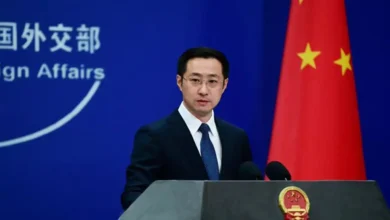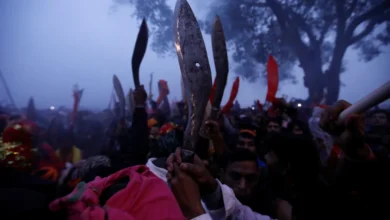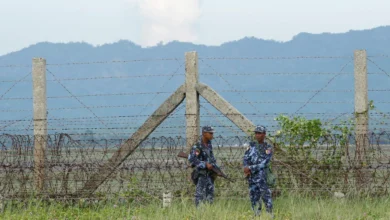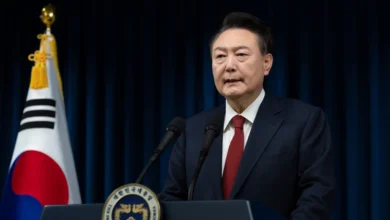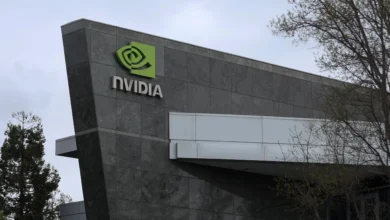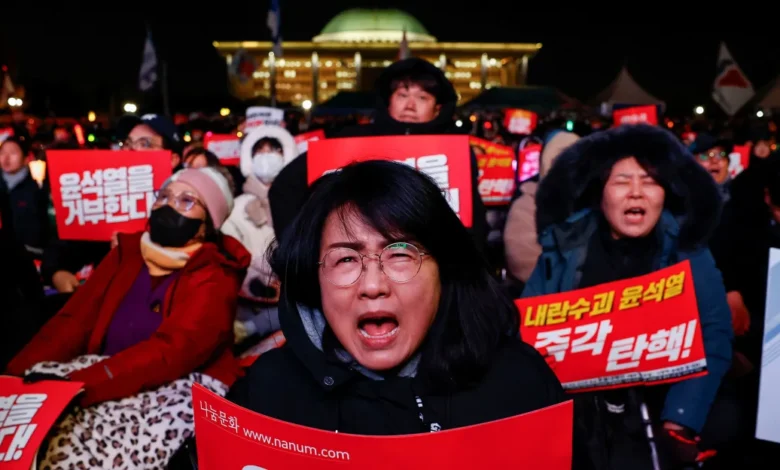
NexNews — South Korean President Yoon Suk Yeol has survived an impeachment vote, but the political turbulence surrounding his administration is far from over. Yoon’s attempt to impose martial law last week sparked nationwide controversy, and although he was able to narrowly escape impeachment, his own party has called for his resignation.
The impeachment motion was blocked after members of Yoon’s People Power Party (PPP) boycotted the vote, with just two lawmakers present in the National Assembly. While opposition lawmakers and protesters outside the parliament demanded Yoon’s removal, the PPP lawmakers remained largely absent, leading to accusations of cowardice from the opposition.
Despite avoiding impeachment, Yoon has faced intense pressure to step down following his surprise martial law declaration. This would have been the first such declaration in over 40 years, but it was quickly overturned within hours by lawmakers, who forced their way into parliament to nullify the decree.
The controversy began on Tuesday when Yoon unexpectedly declared martial law, accusing the main opposition party of sympathizing with North Korea and engaging in “anti-state activities.” The move was seen as an effort to block the opposition-led motion to impeach top prosecutors and reject a proposed government budget. Within six hours, Yoon was forced to rescind the decree after massive backlash from the public and lawmakers.
PPP leader Han Dong-hoon stated that the party would continue to push for Yoon’s resignation to avoid further chaos and confusion. Han emphasized that the resignation would help stabilize the political situation and protect the country from further turmoil. Meanwhile, some opposition lawmakers, including Kim Joon-hyung from the Rebuilding Korea Party, argued that the president’s resignation or impeachment was vital for the country’s future.
In his first public comments following the failed martial law attempt, Yoon issued an apology to the South Korean people, admitting that the emergency decree was a result of his desperation as the responsible party for state affairs. “I deeply apologize to the citizens who must have been greatly shocked,” Yoon said, acknowledging the distress his actions caused. He further assured the public that he would take full responsibility for the political consequences of the martial law.
Yoon’s apology came amid new revelations about his actions during the chaos. Reports surfaced indicating that the president had drawn up a list of political opponents to be arrested during the unrest, including prominent opposition figures. These details came to light after a leaked phone conversation between Yoon and Hong Jang-won, the first deputy director of the National Intelligence Service (NIS). In the call, Yoon allegedly instructed Hong to “arrest and clean everything up” using NIS resources.
The political crisis has raised doubts about Yoon’s ability to complete his term. Protests calling for his impeachment have been growing, and his approval ratings have plummeted. Despite the survival of the impeachment vote, the momentum for his resignation is strong, even within his own party, as PPP members increasingly see his leadership as a liability.
As the situation unfolds, South Koreans continue to express their frustrations, with the future of Yoon’s presidency hanging in the balance. Although he has vowed that there will be no second attempt at martial law, the political chaos surrounding his administration is likely to continue to shape the nation’s political landscape in the coming weeks.
